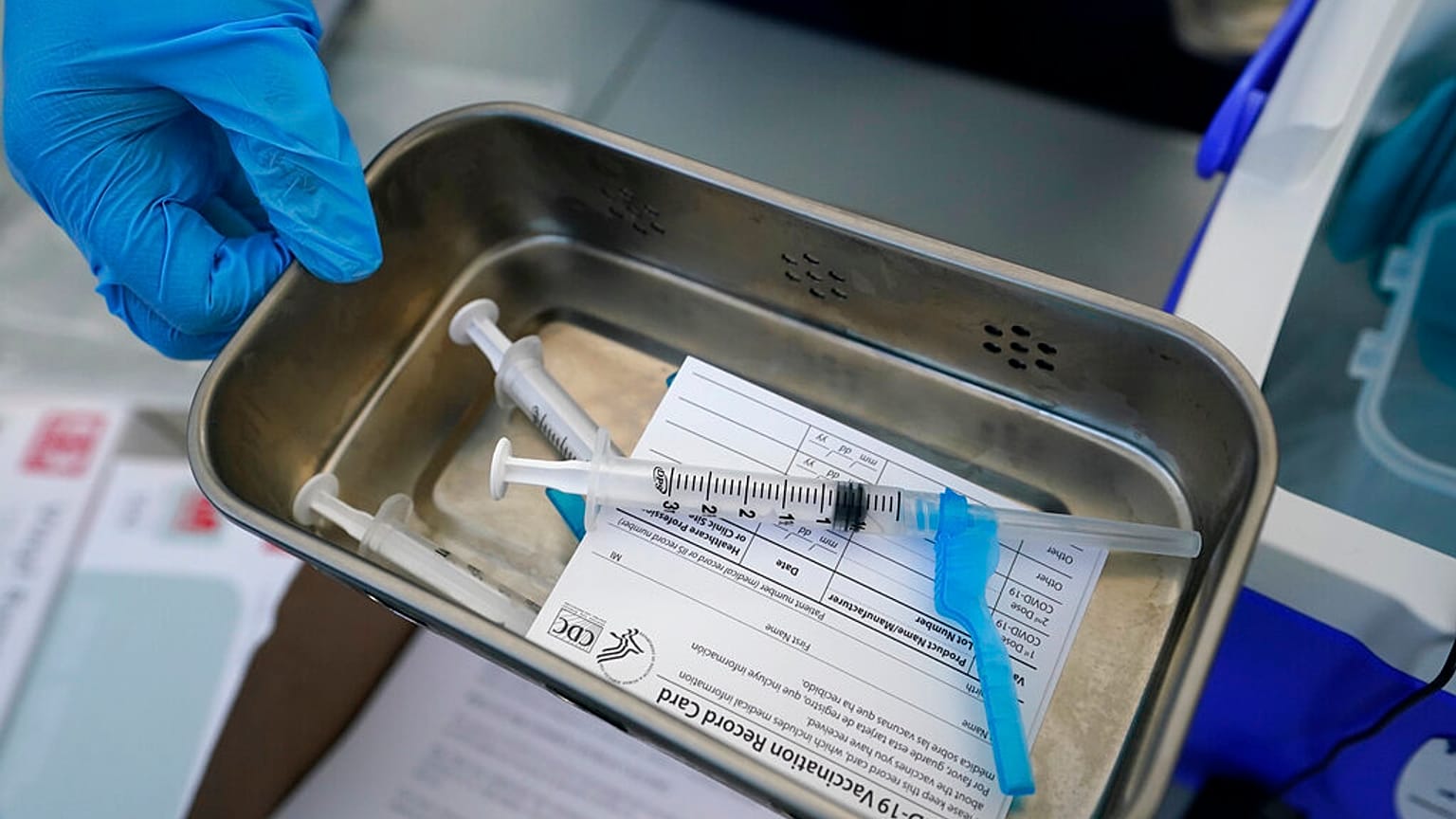Pharmaceutical companies received millions from European taxpayers to help them develop vaccines. Now they must turn that knowledge over to the developing world.
President Joe Biden's support for a temporary waiver on patents for COVID-19 vaccines has turned the global strategy for fighting the pandemic upside down.
 ADVERTISEMENT
ADVERTISEMENT
 ADVERTISEMENT
ADVERTISEMENT
Last October very few in the European Parliament were in support of suspending intellectual property rights for COVID-19 vaccines as soon as major pharmaceutical companies had finished their research.
At that time, vaccines were in the final stage of development and we wanted to act pre-emptively in order to ensure that the debate regarding the legitimacy of the patents would reach the institutions and European public opinion from the word go.
There are three main reasons for defending this measure, which - it has to be said - is somewhat exceptional.
The first is humanitarian: The suspension of the patents would enable the pharmaceutical industry in average- and low-income countries to allocate part of their productive apparatus to manufacturing these vaccines, thus making it possible to ramp up the vaccination campaigns in these countries.
The suspension of patents could ultimately save tens - if not hundreds - of thousands of lives.
The second is health: The risk of the COVID-19 virus mutating is proportional to the number of people who are prone to infection. Until the entire world population has been vaccinated, the virus can continue to mutate, as it has until now.
Fortunately, the vaccines currently available have been effective in providing immunity against emerging mutations. Nevertheless, should a mutation that the vaccines cannot cover emerge, the ongoing vaccination campaigns in the wealthy countries will have been useless.
The safety of just one part of the planet from the virus is impossible: it must be everyone or no one.
The third reason is financial: These vaccines were developed thanks to massive financial support from governments, be it in the U.S., the UK, or the EU, 8,000 of the 14,000 million euros of the overall cost of developing vaccines have been put up by public sources.
In the EU, this has been implemented by means of the so-called Advance Purchase Agreements (APA). Apart from the serious transparency problems these agreements have generated, they have been used to allocate thousands of millions of euros to enable the pharmaceutical companies to speed up the vaccine development process.
It was a question of buying time, of paying upfront for vaccines which in normal circumstances would have been purchased once they had actually been developed. Nevertheless, in any event, these vaccines have been funded by the Commission with money which, when all is said and done, comes from the taxes paid by EU citizens.
Financial compensation
If last autumn there were only a few of us, the petition to suspend the patents is now verging on an outcry. So, what is all this about? We are not only calling for the execution of the provision of the Agreement on Trade-Related Aspects of Intellectual Property Rights (TRIPS) for granting the so-called “compulsory licences”.
This would allow the pharmaceutical industries of the South who do not hold the patents to produce the vaccines, although they would be obliged to provide the industries owning the patents with financial compensation.
The WTO’s general regulations allow us to go even further. They provide for the temporary suspension of sections 1, 4, 5, and 7 of Part II of the TRIPS, thus enabling all the worldwide industry with the capacity to do so to produce the vaccines without the need to provide compensation for any type of intellectual property right in return in order to combat the global health emergency. Because if the events ongoing since 2020 do not constitute a global health emergency, then what does it?
We, as European citizens, looked on in amazement at how, in the course of the latest WTO meetings held on March 10 and April 22, the European Commission - the EU’s voice in this organisation - continued to refuse to budge regarding the proposal by South Africa and India seconded by over 100 countries. And what answer would the EU give to the US position in the next meeting?
None of the arguments used to justify this refusal hold any weight. It has been said that the countries of the South would lack the capacity to produce these vaccines in view of the technical and scientific complexity of the manufacturing process even if they did have the right to do so.
However, although the scientific difficulties involved in the research and development process are indeed substantial, the manufacturing process is technically less complex and is well within reach of the pharmaceutical industry of many of these countries, which often specialise in producing generics.
It has been said that it is a question of logistics. What good would having more vaccines available do if they need to be stored at low temperatures and the countries from the South lack suitable distribution networks? What would the point of it all be if their healthcare systems are so fragile that they lack the doctors and healthcare personnel to cope?
It is true that the challenge of distribution and administration is by no means a minor one, but at this point in time, if the vaccination rate is dramatically slow in the countries of the South, then it is for two reasons: not just logistical issues, but also the lack of supply. Let us eliminate at least one of these problems.
It has also been said that if we suppress the patents, the leading pharmaceutical concerns will be unable to offset the risk they took on in developing the vaccine. What incentive will they have to continue to research or investigate if they do not receive due compensation for taking on this risk in the form of intellectual property rights?
No justification
The APA were supposedly “only” intended to accelerate the process of developing vaccines the world urgently needed: we have not paid for anything that we would not have ended up paying for anyway. However, the conditions for accelerating development eliminate, in practice, the risk involved in research. And if there is no risk, where does the patent’s legitimacy lie?
No, none of these reasons can justify why the EU has not yet taken the decision that the US took some days ago. Because the reasons are baseless. It is more a question of how effectively the big pharmaceutical companies can lobby the European Commission. Recently, thanks to a report from the Corporate Europe Observatory, more details of this strategy were revealed to us.
No justification is left on the EU’s side after the decision announced by the Biden administration. We, have to choose either prioritise the corporate interests of big pharma or prioritise the life of the planet’s most vulnerable citizens and the health of the citizens of Europe and the rest of the world.
Recent statements by president Von der Leyen and President Emmanuel Macron call for optimism. Moreover, in the context of this serious global pandemic, could the EU avail itself of a better geopolitical strategy than sharing knowledge of the vaccine? We do not think so.
Right now, Europe’s production capacity does not allow the EU to distribute enough free vaccines to the rest of the planet or sell them at a lower price. Our “vaccine diplomacy” cannot be anything other than sharing, with the rest of the world, the knowledge that we citizens have made possible with our taxes.
Only in this way will the EU truly take on its role of global cooperative leader, one that it is wont to preach but seldom practices, and only then will it rise to the global challenges it faces in the 21st century.














